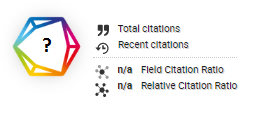Identification of Bisphenol-A (BPA) in Polycarbonate (PC) Baby Bottles in Jayapura, Papua
DOI:
https://doi.org/10.46984/sebatik.v29i1.2570Keywords:
Bisphenol-A, Polycarbonate, Baby bottle, Migration, UV-Vis SpectrophotometryAbstract
Bisphenol-A (BPA) is found in various types of food packaging, such as plastic bottles, paper-based packaging, and the inner lining of canned foods. BPA is widely used in the production of polycarbonate (PC) plastics due to its strength and heat resistance. However, BPA can migrate into food or beverages through physical mechanisms, resulting from the diffusion of loosely bound BPA within the polymer matrix, or through chemical mechanisms triggered by hydrolysis reactions at high temperatures or extreme pH conditions. This study aims to evaluate the migration levels of BPA from polycarbonate (PC) packaging into water at various temperatures using UV-Vis spectrophotometry. The experiment was conducted by adding water into polycarbonate baby bottles at temperatures of 60–100°C, allowing it to sit for 30 minutes before analysis. The test results were compared with the safe BPA consumption limit set by the European Food Safety Authority (EFSA), which is 4 µg/kg body weight per day, as well as the BPOM standard, which establishes a BPA migration limit of 0.6 mg/kg per day. The results showed that BPA was not detected in water that had been in contact with polycarbonate baby bottles at the tested temperatures. Absorbance measurements indicated negative values, suggesting that the detected BPA levels were below the method's detection limit. This indicates that BPA migration is extremely low or undetectable, suggesting that its use under normal conditions can be considered safe.
References
Dreolin, N., Aznar, M., Moret, S., & Nerin, C. (2019). Development and validation of an LC-MS/MS method for the analysis of bisphenol A in polyethylene terephthalate. Food Chemistry, 274, 246–253. https://doi.org/10.1016/j.foodchem.2018.08.109
European Food Safety Authority. (2015). Scientific opinion on the risk of public health related to the presence of bisphenol in foodstuffs: Executive summary. EFSA Journal, 13, 3978. https://doi.org/10.2903/j.efsa.2015.3978
Gusnawati, G., Munira, M., Rachmanto, M. R., & Jamb, U. R. (2023). Analisis migrasi cemaran bisphenol-A (BPA) kemasan plastik polikarbonat (PC) pada produk air minum dalam kemasan galon di wilayah Kota Makassar. Journal of Chemistry, 5(1), 46–52. https://doi.org/10.34312/jambchem.v5i1.19799
Hao, P.-P. (2020). Determination of bisphenol A in barreled drinking water by a SPE–LC–MS method. Journal of Environmental Science and Health, Part A: Toxic/Hazardous Substances & Environmental Engineering, 55(6), 697–703. https://doi.org/10.1080/10934529.2020.1732764
Kim, K. Y., Lee, E., & Kim, Y. (2019). The association between bisphenol A exposure and obesity in children—a systematic review with meta-analysis. International Journal of Environmental Research and Public Health, 16(14), 2521. https://doi.org/10.3390/ijerph16142521
Lee, J., Ahn, Y.-A., Choi, K., Park, J., Moon, H.-B., Choi, G., Lee, J. J., Suh, E., Kim, H.-J., Eun, S.-H., Kim, G.-H., Cho, G., Kim, S. K., Kim, S., Kim, S. Y., Kim, S., Eom, S., Choi, S., & Kim, Y. D. (2019). Bisphenol A in infant urine and baby-food samples among 9- to 15-month-olds. Science of the Total Environment, 697, 133861. https://doi.org/10.1016/j.scitotenv.2019.133861
Lubis, N., Soni, D., & Fuadi, M. D. S. (2021). Pengaruh suhu penyimpanan air minum pada botol kemasan polikarbonat (PC) yang beredar di daerah Garut terhadap kadar bisphenol-A (BPA) menggunakan spektrofotometri ultraviolet. Journal of Chemistry, 15(2), 223–230. https://doi.org/10.24843/JCHEM.2021.v15.i02.p14
Ma, Y., Liu, H., Wu, J., Yuan, L., Wang, Y., Du, X., Wang, R., Marwa, P. W., Petlulu, P., Chen, X., & Zhang, H. (2019). The adverse health effects of bisphenol A and related toxicity mechanisms. Environmental Research, 176, 108575. https://doi.org/10.1016/j.envres.2019.108575
Maghfiroh, D., Monica, E., & Afthoni, M. H. (2022). Pengembangan dan validasi metode spektrofotometri UV-Vis metode derivatif untuk analisis kafein dalam suplemen. Sainsbertek: Jurnal Ilmiah Sains & Teknologi, 2(2-FARMASI), Maret 2022. https://doi.org/10.33479/sb.v2i2.151
Rasyid, A. H. (2017). Analisis cemaran bisfenol A dalam sampel makanan kaleng secara kromatografi gas. Repositori Universitas Indonesia.
Tagaya, H., Katoh, K., Kadokawa, J., & Chiba, K. (1999). Decomposition of polycarbonate in subcritical and supercritical water. Polymer Degradation and Stability, 64(2), 289-292.
Downloads
Published
How to Cite
Issue
Section
License
Copyright (c) 2025 Andre Anusta Barus, Felycitae Ekalaya Appa, Nur Fadilah Bakri, Mustika Endah Pratiwi, Claudius Hendraman B. Tobi

This work is licensed under a Creative Commons Attribution 4.0 International License.
Authors retain all their rights to the published works, such as (but not limited to) the following rights; Copyright and other proprietary rights relating to the article, such as patent rights, The right to use the substance of the article in own future works, including lectures and books, The right to reproduce the article for own purposes, The right to self-archive the article








